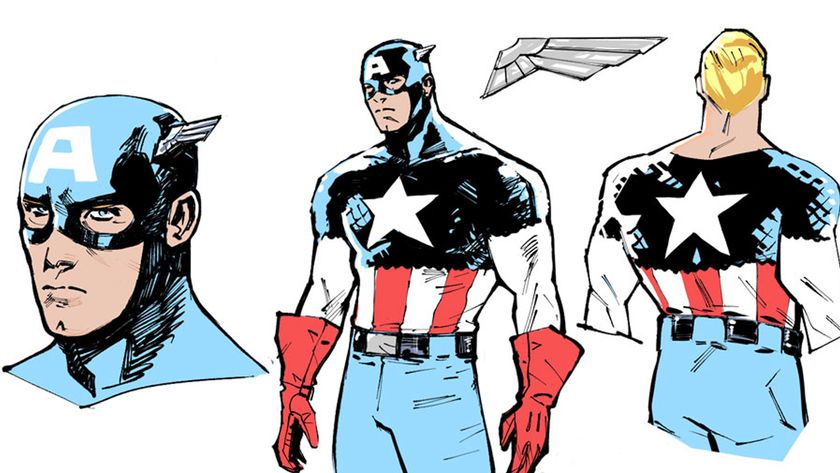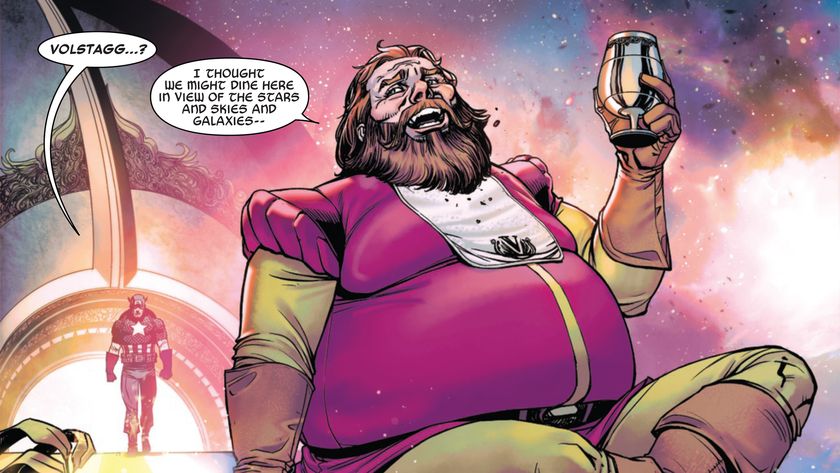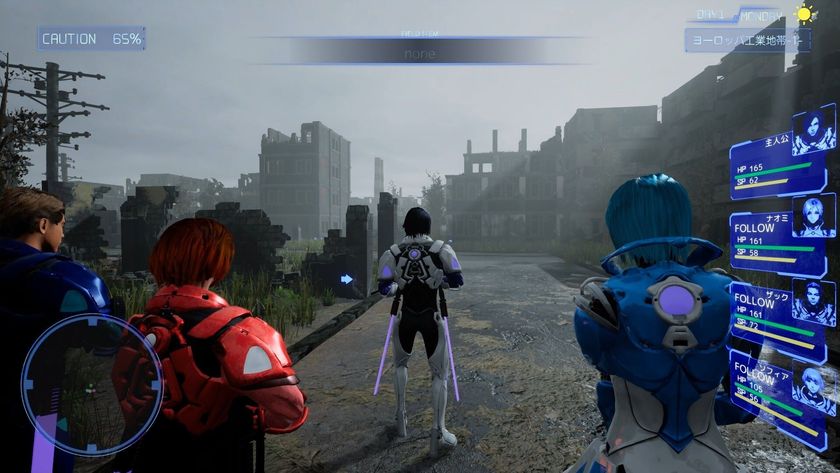Way of X #3 built up as The Morning After the 'Hellfire Gala' festivities according to Si Spurrier
Inside Nightcrawler's fight for the X-Men's soul with Way of X writer Si Spurrier
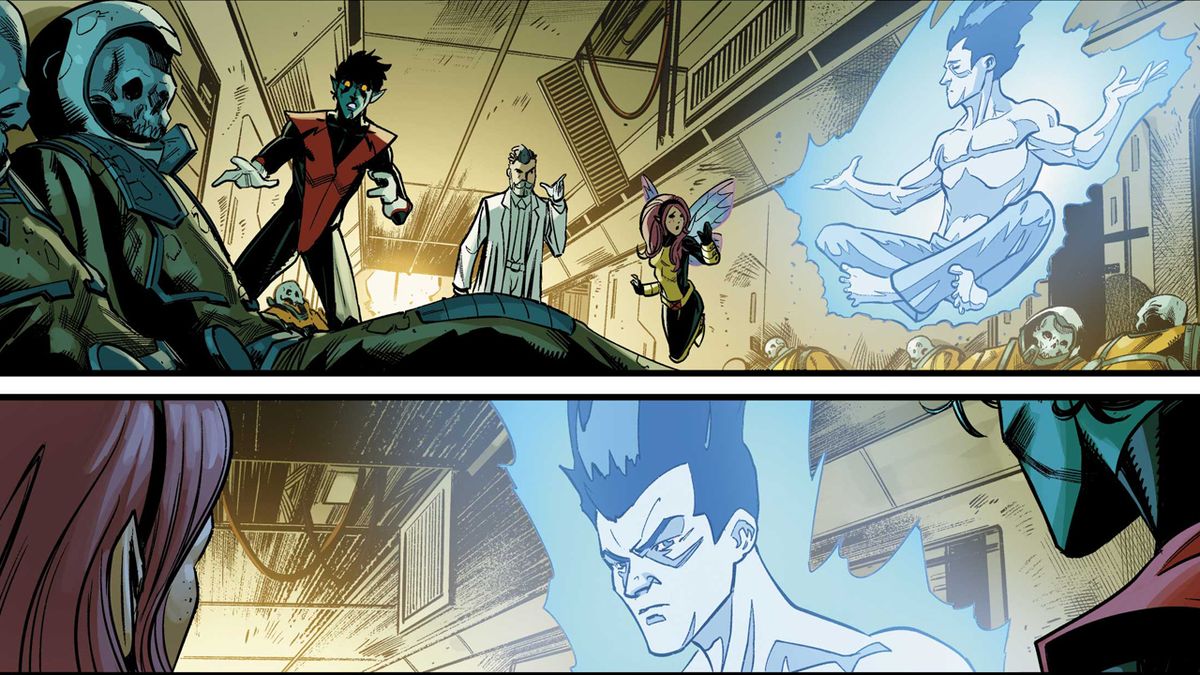
Charles Xavier may be the brains behind the X-Men and mutantkind as a whole, but Nightcrawler is its heart and spirit. In the recently released Way of X #1, writer Si Spurrier and artist Bob Quinn delve into the implications of mutantkind's new status quo in the Krakoan era.
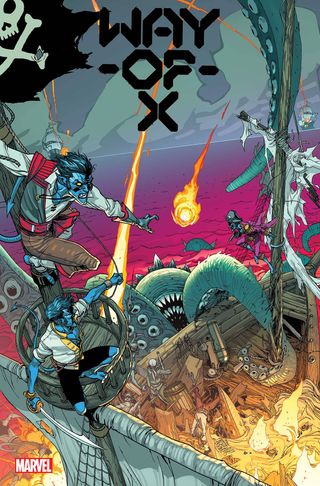
The key question of it all is this - after decades of being hunted and feared (and persecuted) by others, how is mutantkind coming to terms with this new relative safety, sanctuary, and - don't forget - the ability to be resurrected if and when they die (and they have been, a lot.)
"What we're heading towards isn't a religion. It's definitely not a religion in the sense of priests, prayers, and faith," Spurrier tells Newsarama. "It's more like a new way of seeing the world. A uniquely mutant code that speaks to life, culture, and value. Nightcrawler isn't kissing goodbye to his Catholicism and he's not expecting any of the other mutants with existing faiths to set them aside."
Although Way of X is not a roadmap to a mutant religion, Way of X #1 did end with the return of Xavier's only begotten son Legion.
Newsarama had the chance to chat with writer Si Spurrier about all the big moments from Way of X #1 and what they mean heading into May 19's Way of X #2 and beyond. We discuss how the book will tie into the franchise's upcoming event - the 'Hellfire Gala,' how exactly the title will touch upon religion, and, of course, that major cliffhanger with Legion!
Newsarama: Si, let's jump right in, is Way of X going to dive into other religions besides Kurt's Catholicism as he begins to form the building blocks for his mutant religion?
Si Spurrier: The answer is 'yes,' but I'm gonna come right out of the blocks here and say it would be wrong to imagine Way of X is a book about the Creation Of A Mutant Religion. That's a part of it, kinda, sorta, slightly, although even that's pretty reductive.
Comic deals, prizes and latest news
Get the best comic news, insights, opinions, analysis and more!
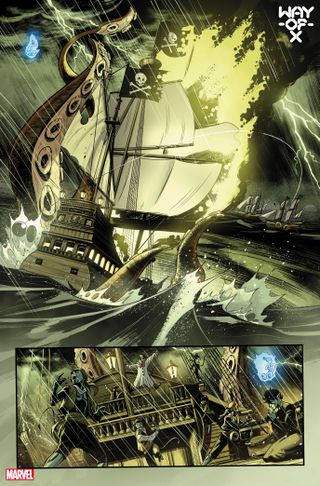
This isn't a book where we interrogate existing faiths and point out what's wrong with them. What we're heading towards isn't a religion. It's definitely not a religion in the sense of priests, prayers, and faith. It's more like a new way of seeing the world. A uniquely mutant code that speaks to life, culture, and value. Nightcrawler isn't kissing goodbye to his Catholicism and he's not expecting any of the other mutants with existing faiths to set them aside.
The truth is: Kurt senses there's something rotten in Krakoa. Nobody else seems to share his fears. There's something horribly wrong with the hearts and minds of mutants, he thinks. Something evil is slithering through their shared unconscious. To face it and defeat it -- to fix a whole raft of broader social problems afflicting Krakoa -- Nightcrawler realizes he needs to find a Big Idea. An idea which makes the lowliest mutant feel as valued and as meaningful as the costumed A-listers romping about on adventures.
If he can't unite ALL mutants behind a single, beautiful principle -- whatever the hell it is -- there's literally nothing to hold this brave young civilization together. And when you have a densely packed population of super-powered individuals all in place, the danger isn't that everyone simply drifts apart… it's that everyone explodes. They need a new way to live, otherwise there's nothing but blood and murder and chaos in their future.
The problem is, Nightcrawler has no idea where to start.
Nrama: Will we see other mutants besides Kurt delving into their religious beliefs? Especially characters that have a heavy connection to their religion - like Kate Pryde or even Magneto?
Spurrier: We definitely touch on it, sure. For some more than others. But - as I said - Nightcrawler quickly realizes that his anxieties cannot be solved by a single faith. He has to start thinking bigger, and differently.
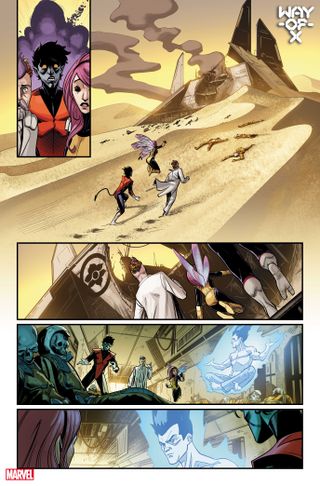
There's a scene in #1 where Doctor Nemesis - who is reliably cynical about everything - just comes out and says it. They all live in a world where actual gods walk the earth and where alien invasions are commonplace. "What does a credulous little believer do when all the big questions have been answered?"
To which Nightcrawler thinks for a moment, then answers: "I suppose they find better questions."
That's Way of X.
Nrama: Kurt is one of the few mutants to doubt Krakoa's perfection. Will this lead to a bigger rift between him and the X-Men down the line?
Spurrier: Not a rift per se, no. It's more to do with his innate empathy. That's one of the things that makes him so utterly compelling as a character - even the big telepaths like Xavier bow to Kurt's ability to understand the human experience, despite being one of the least human-looking X-Men.
The big X characters - the ones we always hear about - are never really in any doubt as to their usefulness, or the direction in which to put energies. But Kurt senses something they never could. A growing darkness within the wider mutant population. It manifests as weird cultural rituals and savage traditions. This, remember, is a civilization that has overcome death itself.
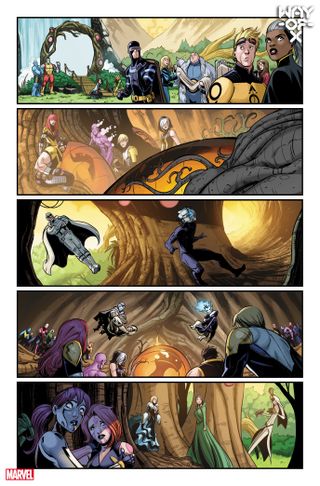
So, when, for instance, Kurt sees teenagers deliberately encouraging each other to die, because - hey, no big deal - you'll get resurrected... that feels instinctively wrong. But the kids don't understand why. And he can't really give a good explanation. Where's the sin in treating life cavalierly when death isn't final. What, exactly, is his problem?
At first, he thinks maybe he's paranoid. Maybe he's just stuck in the old ways - the Sapiens ways - of thinking. But when he brings his concerns to Professor X, he gets a shock.
Xavier has detected something. An entity. An omega-level mutant. Preying on the nihilistic tendencies of mutants… spreading sensory anarchy and sadism...
So, no - to your question - there's not a rift coming per se. But there might be a catastrophic civilization-ending catastrophe.
I think any sensible mutant living in Krakoa understands that there are big, difficult questions that need to be asked. (I can imagine most mutants who've undergone the process of resurrection having a few sleepless nights afterward.) The difference is that whereas some of them are able to shrug off their uncertainties and get on with the business of Empire Building, Nightcrawler sees the inherent horrors in ignoring the bigger picture.
Nrama: With the appearance of Doctor Nemesis, there's an element of science already being introduced. How will science and theology play hand in hand?
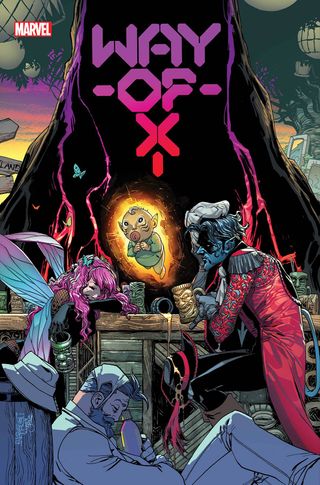
Spurrier: Ha! In perfect harmony! Exactly as you'd expect from an action-heavy superhero comic. [thbbbppt]
Nemesis is our curmudgeonly voice of bitterness and reason. He looks down on literally everything until he gets the chance to liquefy something with his latest insane chemical weapon, at which point he's the funniest guy around. Oh, and now he's taken to growing psychedelic mushrooms out of his own brain, because Science.
All of which is to say: this really, really, really isn't the sort of book where people sit around debating the ontological implications of the X-gene, or the theological ramifications of resurrection, or the effect of A.I. on the average size of a human's social circle, or etc etc etc.
Like, all those things are 100% on the table in this book. They're just handled with - I hope - fun, and excitement, and occasionally horror. And Bamfing. Lots and lots of Bamfing.
Nrama: This issue references the mutants affected by House of M, even name-dropping Scarlet Witch. Will Scarlet Witch play a bigger role in your series?
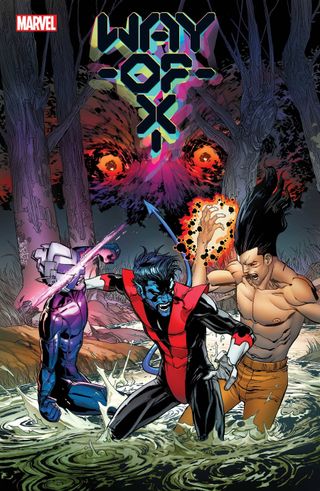
Spurrier: On this, I must be circumspect. I cannot speak to future plans, except to say: the X-office is all-knowing and all-cohesive, and nothing happens by accident.
Also, to say, just because there's a pernicious bogeyman culture growing up among Krakoan mutants around Wanda, that doesn't mean a) the X writers agree it's right or b) even all mutants agree it's right.
We're dealing with newly-formed civilizations here. One of the sad realities is that the systems of communal control tend to be reductive. Those first upshootings of culture will often divide people into Us and Them. That's a gross reality you're going to find at literally every stage in recorded history.
If you're a young mutant on Krakoa, listening to the tales of Those In Power, you're absolutely going to believe Wanda is some sort of archdevil, irrespective of all mitigating factors. We the readers and we the writers have a far more nuanced take, but the drama of the story comes from these very human prejudices.
Prejudices which should, naturally, be challenged. That's one the primary responsibilities of fiction, isn't it? So: watch this space.
Nrama: The 'Hellfire Gala' will be tying in pretty early on with your series, will the events from the Gala have an overall effect on your series? Was the Gala always built into your series outline?
Spurrier: Yes and no. Way of X and the gala were taking shape in parallel, so it was quite tricky to know exactly where one would fall in relation to the other at first. The smart approach was to make sure that Way of X uses the gala as a major stepping stone to push the story forwards, but that we could be flexible with how much time we actually spend there.
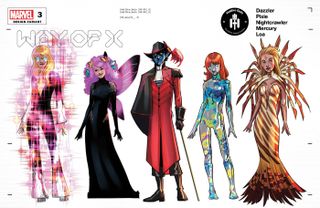
In the event, it's worked out in a really fun way. Way of X #3 is basically The Morning After. We have a series of swift flashes to the night before - spoilers: Nightcrawler got really, really, really drunk - then deal with the fallout. A lot of very hungover (and very horny) mutants.
That issue's title is 'The Joy of X.' I love that.
Nrama: Let's talk about that cliffhanger of Way of X #1 - Legion returns. What role can we expect him to play moving forward?
Spurrier: Oh, come onnnn, I'm not gonna spoil that. :)
What I will say is that there are a lot of surprising twists and turns to Legion's role here. You think you know? Think again.
Nrama: Will we see some interactions between Legion and Professor X?
Spurrier: Yes. Oh god yes.
Keep track of this and ALL the new X-Men comics, graphic novels, and collections in 2021 and beyond.
Kat has been working in the comic book industry as a critic for over a decade with her YouTube channel, Comic Uno. She’s been writing for Newsarama since 2017 and also currently writes for DC Comics’ DC Universe - bylines include IGN, Fandom, and TV Guide. She writes her own comics with her titles Like Father, Like Daughter and They Call Her…The Dancer. Calamia has a Bachelor’s degree in Communications and minor in Journalism through Marymount Manhattan and a MFA in Writing and Producing Television from LIU Brooklyn.
Most Popular





